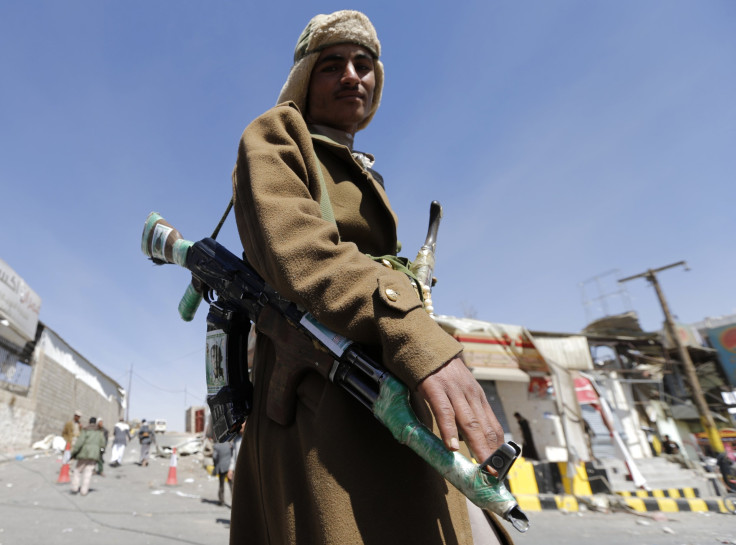Who Are The Houthis? Yemen Shiite Rebel Group Seizes Presidential Palace

Deadly clashes this week between Yemeni government forces and Houthi rebels in the capital city of Sanaa prompted renewed international focus on the minority group's ongoing, often violent bid for increased participation in the nation's government. A short-lived ceasefire between the two factions ended Tuesday when Houthi forces took control of Yemen's presidential palace after a brief skirmish, multiple sources told Reuters.
The seizure of the presidential compound occurred hours after fighting between the Houthis and forces loyal to President Abed Rabbo Mansour Hadi left at least nine dead and 67 injured, reports said. The Houthis took control of Yemeni state media and made pushes toward the presidential palace and a local military base, the Associated Press reported. One Yemeni official described the scene as “a step toward a coup.”
Hadi did not immediately address Monday’s clash in Sanaa. Government forces reached a ceasefire with the Houthis by late afternoon local time that day, though each side blamed the other for starting hostilities. The Houthis allege Hadi failed to deliver on a U.N.-backed agreement that he add new members to the national committee responsible for drafting of a new Yemeni constitution.
The hostilities were the latest in months of conflict between the rebels and Hadi's U.S.-backed regime. The Houthis are members of the Zaidi branch of Shiite Islam, a minority among Yemen's mostly Sunni population. The group is named after Hussein Badreddin al-Houthi, a Yemeni cleric who died in 2004 during a rebellion against the government.
The group's true aim and funding are a source of constant debate. Hadi alleges Hezbollah manages and trains the Houthis, while al Qaeda, a rival Sunni militant group, claims Shiite-run Iran is funding the Yemeni rebels to secure its trade interests in the region, CNN reported.
In any event, the Houthis have proved effective at disrupting Yemen's government. Rebels previously captured Yemen’s capital in September and forced the government’s resignation. The group's stated goal is to obtain a greater voice in Yemen’s Sunni-controlled government and for Hadi to enact reforms on their behalf. September’s attack occurred amid dissatisfaction with progress on the reforms.
Earlier this month, Hadi and his supporters began drafting a new constitution without Houthi approval – one that would divide Yemen into six states. The militants responded by kidnapping Hadi’s chief of staff, Ahmed bin Mubarak, on Saturday, which prompted the renewed conflict, the Wall Street Journal reported. Top Houthi official Osama Sari said the group warned Hadi not to proceed with a constitution without Houthi approval.
“We stressed that we won’t allow a constitution that divides Yemen into six states. Hadi knows this is a red line,” Sari told the newspaper.
Rebel forces reportedly took control of key positions near the presidential palace and the military base before a ceasefire went into effect Monday afternoon. The United States condemned the fighting through its embassy. “We reject the use of violence by those who seek to overturn Yemen’s political transition for their own interests, and fully support President Hadi as the legitimately mandated president,” the embassy said in a statement.
The Houthis are not affiliated with al Qaeda in the Arabian Peninsula, Yemen’s branch of the militant Sunni organization that claimed responsibility this month for the attack on French satirical magazine Charlie Hebdo in Paris. The two groups have come into conflict in the past – AQAP bombed a Houthi rally in October.
© Copyright IBTimes 2024. All rights reserved.












